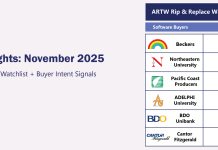After years of running a hodgepodge of legacy and best-of-breed apps, many healthcare organizations find themselves with disjointed operational workflows that prevent them from creating holistic, consistent and end-to-end business processes.
Various knowledge workers and medical professionals, bogged down by outdated and disparate technology systems, are having a tough time bridging their raw or transactional data into purposeful actions.
The resulting silos create considerable duplicated efforts and little to no visibility on their operational or financial performance, a situation exacerbated by insufficient support for new legal and compliance requirements.
It’s a classic case of the right hand not knowing what the left hand is doing – and neither side being able to share data and workflows to achieve productivity gain and new-era compliance for laws such as the Affordable Care Act (ACA). What’s more, the ACA stakes are higher than ever based on penalties for non-compliance at various levels of the healthcare delivery chain.
To conform, healthcare financial executives will face margin erosion on the provider side as they are further pressured to comply with the new rules and regulations. The bottom line is that the healthcare industry, and any U.S. company that will need to provide coverage that meets the new guidelines, must quickly adopt purpose-built new compliance processes.
Apparancy, (www.apparancy.com) a sister company of financials business process outsourcing (BPO) vendor Corefino (www.corefino.com) , has come up with a new way to help companies better manage these businesses, especially from a workflow, audit and compliance perspective. Apparancy is founded by Karen Watts, a pioneer in the Cloud-based financial solutions space who also founded Corefino.
Simply put, Apparancy offers a business process management engine that automatically delivers workflow plug-ins for meeting new rules, regulations, and general-business compliance requirements from budgeting to disbursing marketing funds.
Functioning like apps, these plug-ins derive the same admin features, workflow templates, and best-in-class reporting capabilities from Corefino’s intellectual property, which covers over 500 financials business processes from accounting to audit-worthy framework. Both companies offer cloud-based, software-as-a-service options that save both time and resources, compared with conventional in-house solutions that are commonly associated with long and expensive deployment.
In early 2014 Apparancy is expected to unveil the first of these Cloud-based BPM solutions designed for healthcare payers and providers, helping them navigate a maze of new compliance requirements stemming from the Affordable Care Act.
Among the pain points Apparancy aims to address is the transition from ICD 9 to ICD 10 coding classification for medical billing. The use of ICD 10 will entail a flood of new data cleansing, billing form revisions, let alone the corresponding approvals, reviews and amendments facing both payers and providers.
Pressed by tight deadlines and constrained IT resources, many insurers and hospitals would be well-advised to outsource specific business processes that involve compliance duties to third-party healthcare industry services firms. Apparancy is currently in the process of partnering with a number of BPOs as it extends to healthcare industry professionals an array of turnkey software solutions that will automate such new business processes.
With the help of a well-defined, bi-directional workflow delivered via real-time Cloud and even mobile devices, Apparancy aims to help healthcare organizations address process gaps, operational latency, or any other issue that prevents them from being in full compliance. Specifically, they will have the means to improve processes, aggregate disparate data and workflows, and comply with new laws, potentially resulting in millions of dollars in savings or penalty avoidance over the course of a year.
Apparancy’s debut comes first to the U.S. healthcare marketplace, which is estimated to top $3 trillion in healthcare spending, a sum that is the largest in the world. Facing structural reform that has been dealt one setback after another, the much-publicized healthcare.gov debacle is just the tip of the iceberg from a process standpoint. Here once again, the industry’s right hand seems not to even know the existence of the left hand.
As the healthcare industry seeks to become more efficient and cost-conscious, it’s incumbent upon all the key stakeholders to strive for incremental improvements to their IT systems so that well-established medical practices and innovative technology breakthroughs can coexist and converge to deliver greater value to the population at large.
Apparancy’s ability, forged on the five-year track record of its sister company Corefino to deliver new efficiencies, savings and compliance capabilities, may well be the needed process-delivering helping hand for an industry in turmoil.






